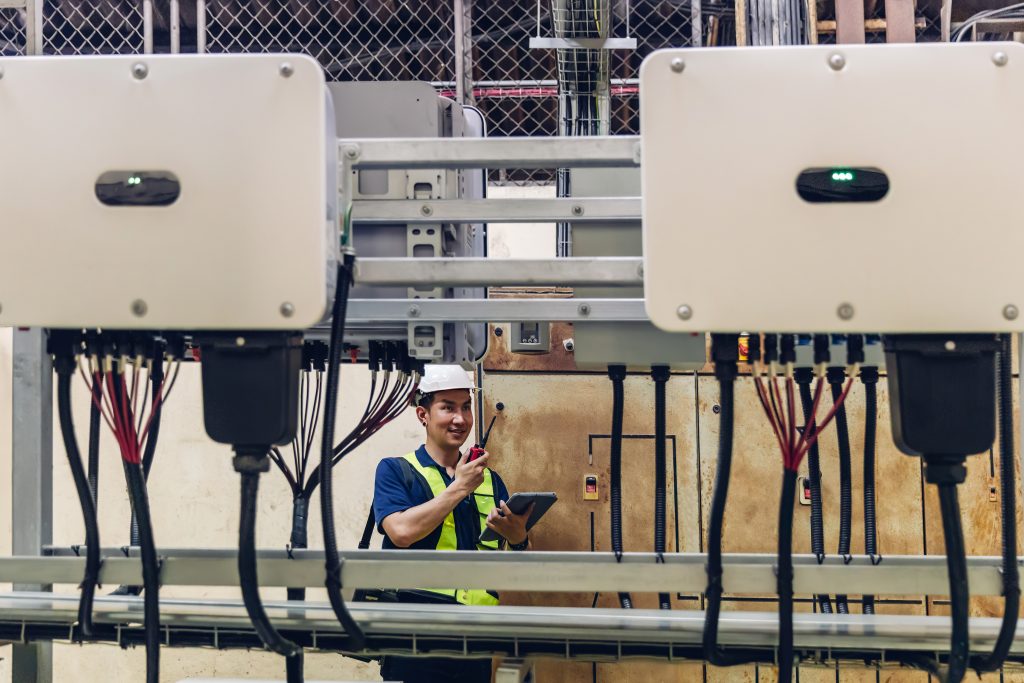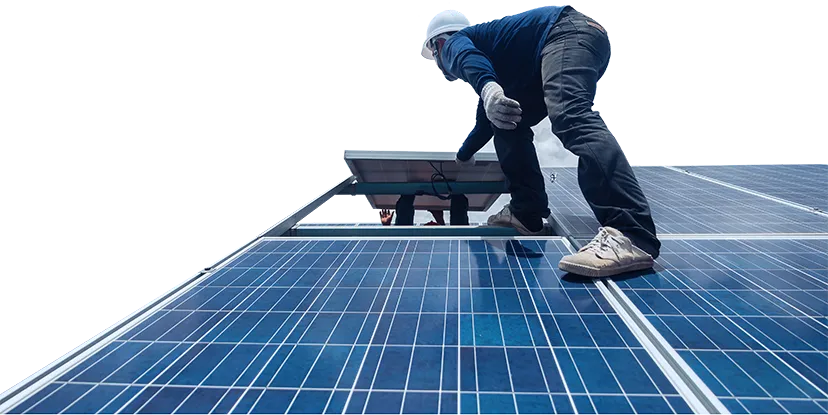Solar Inverters: What Are They and How Do They Work?
Solar inverters are critical components of a solar power system, converting direct current (DC) produced by solar panels into alternating current (AC), which is used by most home and business appliances. They optimize power output using Maximum Power Point Tracking (MPPT) technology and often include monitoring systems for real-time performance analysis.
By incorporating both solar inverters and batteries, a solar system becomes more versatile and capable of providing power during non-sunny hours, ensuring greater energy reliability and autonomy. Investing in quality inverters and batteries can make your solar system more efficient, cost-effective, and sustainable in the long run.

Types of Solar Inverters:
- String Inverters: Connect multiple panels in series, cost-effective but less efficient if shading affects one panel.
- Micro-inverters: Installed on individual panels, ensuring efficiency in variable sunlight conditions.
- Hybrid Inverters: Combine solar energy conversion with battery storage, ideal for energy independence
Solar Batteries: How Do They Work?
Solar batteries store excess energy produced during the day for use during low-sunlight periods or power outages. Advanced lithium-ion batteries dominate the market due to their high energy density, efficiency, and longevity. Modern batteries integrate smart energy management systems for optimized storage and usage.
Technological Improvements:
- Both inverters and batteries now boast higher efficiency, improved energy storage capacities, and enhanced durability.
- Integration with IoT and smart home technologies allows better control and monitoring of energy use.
Leading Manufacturers in the U.S.:
- For inverters: Enphase Energy, SolarEdge, and SMA America are top manufacturers, offering high-quality products with advanced features.
. - For batteries: Tesla Powerwall, LG Chem, and Sonnen dominate the U.S. market, favored for their performance and innovative designs.
Best-Selling Products in Arizona:
- Inverters: Enphase micro-inverters are popular for their efficiency in homes with complex shading issues, while SolarEdge systems are widely chosen for larger setups.
- Batteries: Tesla Powerwall leads in Arizona due to its high capacity and seamless integration with solar systems. Sonnen batteries are also favored for their eco-friendly design.
Arizona’s growing solar market emphasizes resilience and efficiency, making advanced inverters and batteries essential for maximizing solar energy use.

Solar Inverters: The Heart of Your Solar System
A solar inverter plays a critical role in any solar energy system, converting the direct current (DC) electricity produced by solar panels into alternating current (AC) electricity, which is the standard form used to power homes and businesses. Without an inverter, solar power would be unusable for most appliances. There are different types of inverters, including string inverters, microinverters, and power optimizers, each with its own set of advantages.
String inverters are the most common, typically used for residential and commercial solar installations, as they are cost-effective and simple to install. Microinverters, on the other hand, are installed on each panel and allow for greater energy production, particularly in systems where panels are partially shaded. Power optimizers combine the benefits of both string and microinverters by optimizing the output of each solar panel while still using a central inverter. Advances in inverter technology have led to increased efficiency, enhanced monitoring capabilities, and better integration with smart home systems, offering consumers improved performance and control over their energy systems.
Solar Batteries: Storing Energy for Later Use
Solar batteries are essential for maximizing the efficiency of a solar power system, especially for homeowners or businesses looking to use solar energy during periods when the sun isn’t shining, such as at night or during cloudy days. These batteries store the excess energy generated by solar panels during the day, allowing users to draw from this stored energy when needed. This energy independence reduces reliance on the grid and helps mitigate high energy costs, particularly in areas with expensive peak-time rates.
There are various types of solar batteries, with lithium-ion batteries being the most popular due to their high energy density, longevity, and relatively low maintenance needs. Other options include lead-acid and saltwater batteries, though these tend to be less efficient and have shorter lifespans. With continuous improvements in battery technology, modern solar batteries now offer smarter features, such as remote monitoring, better temperature tolerance, and longer storage times. Some of the most popular solar batteries on the market today include the Tesla Powerwall, LG Chem RESU, and Sonnen.



